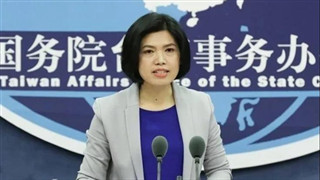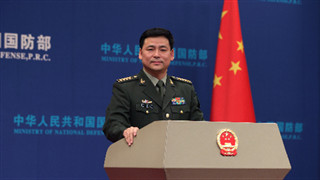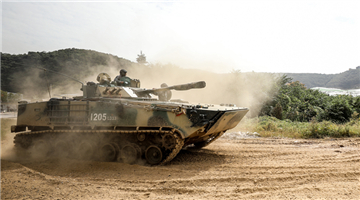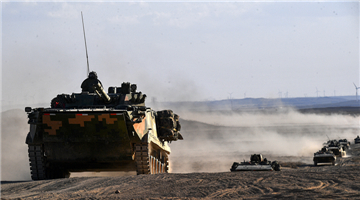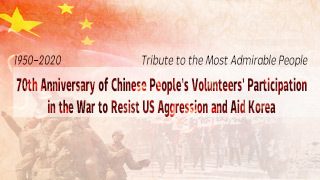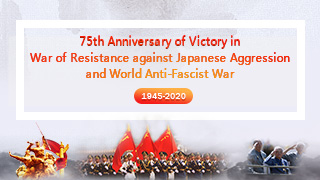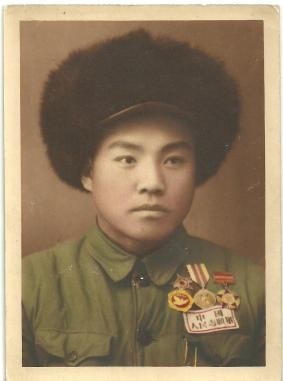
Li Weibo graduated from Northeastern Military and Political University in advance in October 1950. He was assigned to the 504th Regiment of the Anti-aircraft Artillery of Chinese People's Volunteers (CPV) to learn how to operate Soviet style anti-aircraft artillery. Two months later, Li was assigned to the 501st Regiment of the CPV Anti-aircraft Artillery stationed in Ji'an City, Ji Lin Province. The regiment was responsible for defending the China-Korea passage Ji'an Yalu River Bridge and North Korea's Manpo City, which is on the other side of the Yalu River. The US military dispatched almost one thousand warplanes to bomb the Yalu River Bridge in Ji'an from August to November in 1950.
From the day Li was assigned to the 2nd Company of the 501st Regiment until the end of the War to Resist US Aggression and Aid Korea. Li hardly left his gun position in order to defend the Yalu River Bridge in Ji'an. "Whether it’s in winter or summer, I slept right beside the gun stand at night. The farthest is to go to the cookhouse for food and the distance from the gun stand is only 200 meters."
Due to frequent enemy attacks, Li's regiment was fighting almost every day. A battle in 1952 made for a lifetime of unforgettable memories. At that time, Li had been promoted from the first anti-aircraft gunner to deputy platoon commander and he was responsible for the command and coordination of the gun positions. On that morning, all soldiers had just had breakfast, and then a distant surveillance post reported that eight enemy aircrafts were found in the southwest and were flying towards Li's defense zone.
After learning of the enemy's situation, Li led his platoon to enter the battle readiness. After the first two enemy aircrafts entered the firepower range of the anti-aircraft guns, he immediately ordered all anti-aircraft guns in his platoon to fire. Hundreds of shells formed a dense firepower net in the air, hitting the two enemy aircrafts. One of which fled southeastward with black smoke, and the other F-84 fighter flew lower and lower and fell into the distant mountains with thick black smoke and fire rising.
"That battle only took 20 minutes, and there were no casualties in our side. The US F-84 fighter that was shot down was found in the Nanshan Mountain in Tonghua, Jilin province the next day. The pilot parachuted and was captured by local police and militia. He is Lyle Cameron, who ever fought in World War II and had thousands of flight hours," Li Weibo recalled.
The War to Resist US Aggression and Aid Korea ended in victory in July 1953 and Li Weibo was granted a Third-class Merit. He was then awarded the "Medal of Honor for Victory" of the Chinese People’s Liberation Army in July 1988.



